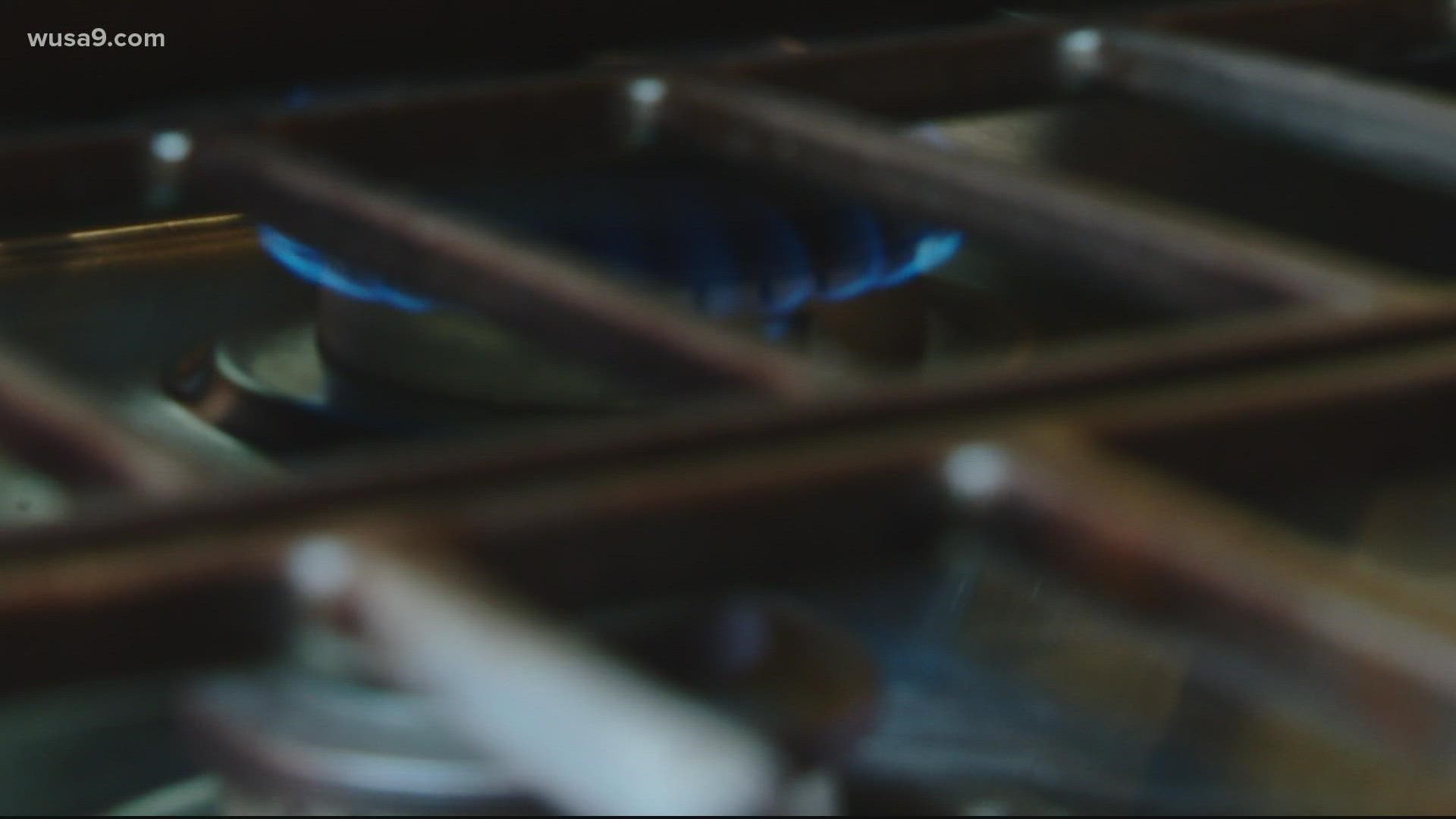WASHINGTON — Maybe you haven’t thought about your gas stove, your gas furnace or your gas dryer as a source of pollution and greenhouse emissions right in your own home.
But on Tuesday, the Richmond City Council voted for a resolution to phase out so-called natural gas – including its own gas utility -- citing a climate emergency.
Activists are now pressuring D.C. and other jurisdictions to do the same.
Starting in Berkeley, California in 2019, and now sweeping across the country, environmentalists have launched a movement to phase out new gas hookups in new homes and businesses.
"This is dirty, noxious stuff that’s bad for our climate and it’s bad for our health," said Mark Rodeffer of the D.C. Sierra Club chapter.
The Sierra Club wants D.C. to go even farther, to phase out gas even in homes and buildings that already have it.
Gas used for cooking, clothes drying and heating accounts for 23% of the city’s greenhouse gas emission, by the city’s own count.
Activists say the District needs to phase out gas completely to have any chance of meeting its goal to be carbon neutral by 2050. Experts say natural or methane gas is even more planet-warming than carbon dioxide.
"Anytime you burn something and send out fumes, it’s not clean," said Rodeffer. "Gas appliances fill our homes with the same pollutants as car exhaust. This is things like carbon monoxide, nitrogen dioxide, and particulate matter, and even formaldehyde."
The gas industry has pushed back hard. Some 20 states have banned localities from banning gas, to "preserve a choice of utilities for customers," according to Jake Rubin, a spokesman for the American Gas Association, which represents more than 200 local energy companies.
“We have been a trusted energy provider for more than 170 years and we are committed to meeting our customers’ energy needs in the future in an affordable, safe and reliable way. As we move toward a lower-carbon future, we must preserve choice and give customers affordable solutions to meet their energy needs," said Brian Edwards, a spokesman for Washington Gas.
"Strategies that eliminate fuel choice will disproportionally burden low-income families, jeopardize businesses, and put too much strain on the energy grid. Our region needs the energy options that we can provide today and in the future, as fuels such as renewable natural gas and hydrogen become potential solutions,“ he said.
In Maryland, Mike Tidwell, the director of the Chesapeake Climate Action Network says he expects legislation to fully electrify new buildings, and give people incentives to retrofit, is likely in the next session of the General Assembly.
Washington Gas argues that its plan would be $2.7 billion cheaper than full electrification. But gas infrastructure is expensive too. Washington Gas plans to invest $5-billion in gas lines and equipment over the next few years.
Some advocates argue that banning gas for home heating would push up the use of gas to generate electricity, at least in the short term. But D.C. has already committed to using 100% renewable electricity by 2032.
San Francisco estimated that retrofitting all its housing units that currently use gas and making them fully electric would cost between $3.4 billion and $5.9 billion. But the Biden Administration hopes to incentivize people to install all-electric heat pumps and stoves that use electric-powered induction cooktops.
Advocates keeping gas has costs too, for our health and for our planet.

